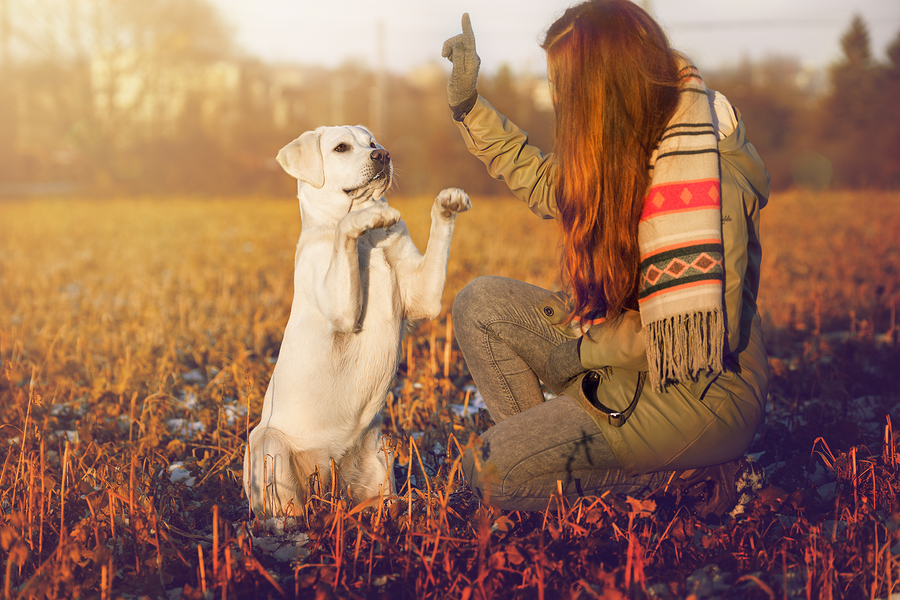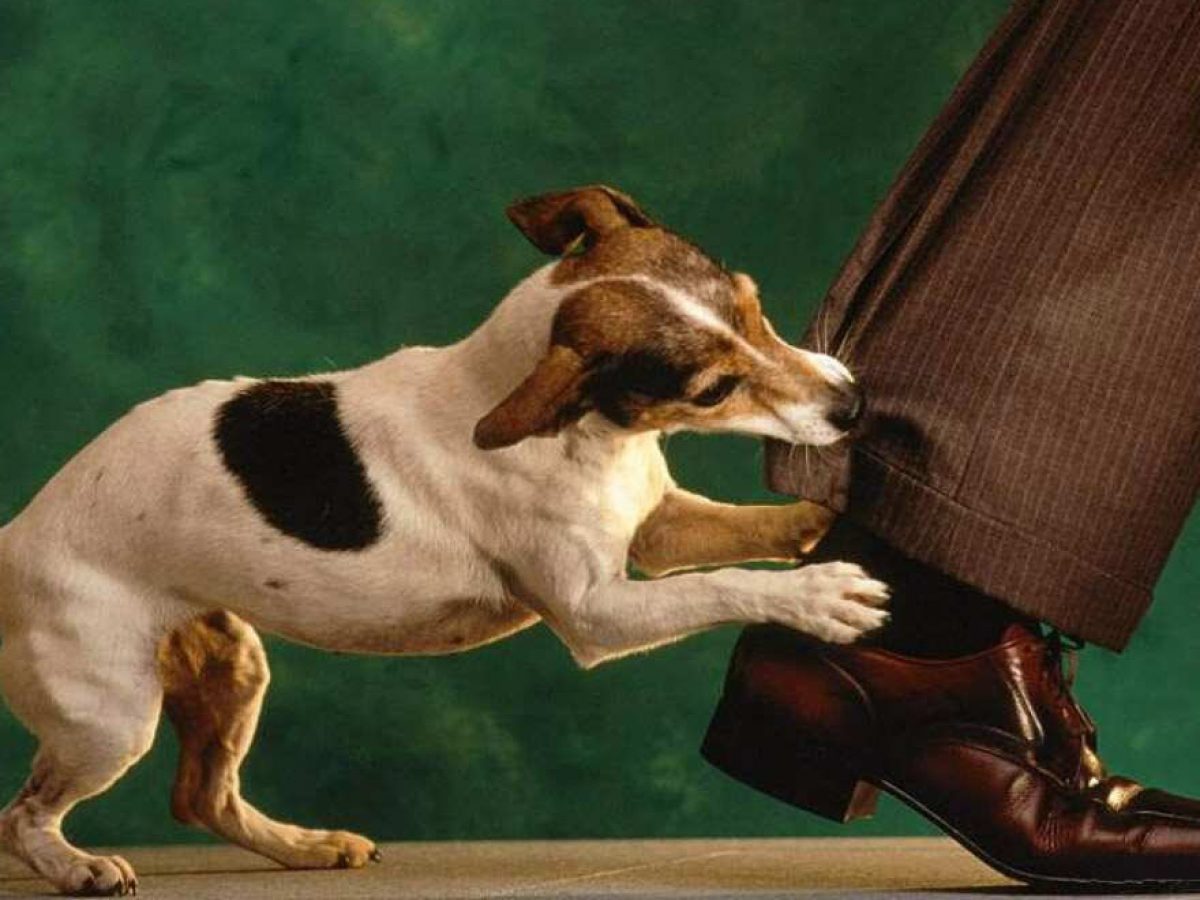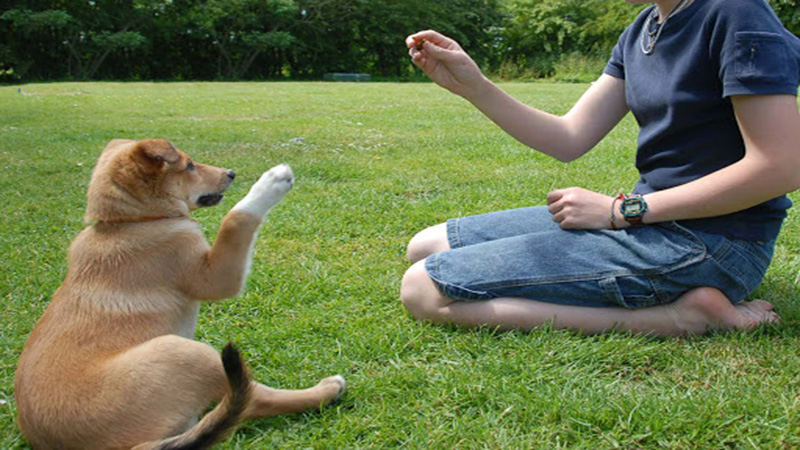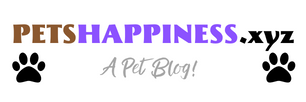HOW TO TRAIN A PUPPY TO OBEY
You can start with puppy training by establishing a good relationship with them, then move on to training the puppy to carry out the necessary commands in life
Raising a puppy is fun, but you should also determine the responsibilities of each family member when participating in puppy training, as well as some of their rules. Training methods are important, not just for puppies.

Train your puppy to the toilet in the right place

Start potty training in the right place after you bring your puppy home. Be aware that puppies 12 weeks and younger often do not have a full bladder or bowel control. Even if they want to "hug" they still can't, so you shouldn't be harsh when they poop around the house. Most puppies are fully potty trained by six months of age, and in some cases longer.
Schedule regular feedings, as puppies often deal with grief after eating. To speed up potty training, you should feed them at set times of the day and stick to this schedule. You should not "free-feed" (keep food on hand regularly) unless recommended by your veterinarian.
Puppies usually need to go to the toilet every 30-45 minutes. You should schedule a time for them to go out. Puppies need to be outside every hour and after eating, sleeping, and playing. The first thing you need to do every morning is take them outside, before going to bed, and before you leave them alone at home for extended periods.
Train your puppy to stop biting and gnawing
Schedule regular feedings, as puppies often deal with grief after eating. To speed up potty training, you should feed them at set times of the day and stick to this schedule. You should not "free-feed" (keep food on hand regularly) unless recommended by your veterinarian.
Puppies usually need to go to the toilet every 30-45 minutes. You should schedule a time for them to go out. Puppies need to be outside every hour and after eating, sleeping, and playing. The first thing you need to do every morning is take them outside, before going to bed, and before you leave them alone at home for extended periods.
Train your puppy to stop biting and gnawing

Puppies love to explore new worlds with their mouths, so they will bite you while learning or playing. Puppies don't know that their sharp teeth can pierce the skin when they bite, so you should train your pup not to bite at a very young age.
Puppies don't know if they bite hard or lightly. When playing with your puppy, you can let them chew on their skin in case they already have this behavior. If the puppy is biting badly, you need to scream or yell "Wow!" This will startle them and stop biting you.
When you see your dog biting on objects like shoes, furniture, or socks, remove them and verbally reprimand them. Instruct the puppy to continue chewing on other objects, such as toys, and praise them when they start chewing. This step helps the dog understand what can and cannot be chewed.
Tips for training puppies

Do not call puppies around to punish them. This will cause dogs to associate this method with punishment, scaring them and not trusting your calling.
Do indoor training until the puppy understands the commands and is more focused and calm. Then move them outdoors for more entertainment, but keep them on a leash or in a fenced area to be safe.
Start training before feeding your puppy. They see the act of eating as a reward.
If your puppy is distracted and starts to get bored even after a short training session, you can let them play during training. Some of the games include hidden rewards and having your puppy find, play with objects, and any creative and fun-filled game that you and your puppy enjoy.
Train only one dog at a time (if you have multiple dogs) and let it focus on you.
Do not hit the puppy with objects. This will only break down the long-established human-dog intimacy.
You need to be gentle and careful when pulling on the leash to guide the puppy into a new position, such as "sitting down" or "laying down." Don't pull on the leash, just pull gently so the puppy knows what to do.
Puppies don't know if they bite hard or lightly. When playing with your puppy, you can let them chew on their skin in case they already have this behavior. If the puppy is biting badly, you need to scream or yell "Wow!" This will startle them and stop biting you.
When you see your dog biting on objects like shoes, furniture, or socks, remove them and verbally reprimand them. Instruct the puppy to continue chewing on other objects, such as toys, and praise them when they start chewing. This step helps the dog understand what can and cannot be chewed.
Tips for training puppies

Do not call puppies around to punish them. This will cause dogs to associate this method with punishment, scaring them and not trusting your calling.
Do indoor training until the puppy understands the commands and is more focused and calm. Then move them outdoors for more entertainment, but keep them on a leash or in a fenced area to be safe.
Start training before feeding your puppy. They see the act of eating as a reward.
If your puppy is distracted and starts to get bored even after a short training session, you can let them play during training. Some of the games include hidden rewards and having your puppy find, play with objects, and any creative and fun-filled game that you and your puppy enjoy.
Train only one dog at a time (if you have multiple dogs) and let it focus on you.
Do not hit the puppy with objects. This will only break down the long-established human-dog intimacy.
You need to be gentle and careful when pulling on the leash to guide the puppy into a new position, such as "sitting down" or "laying down." Don't pull on the leash, just pull gently so the puppy knows what to do.




Post a Comment